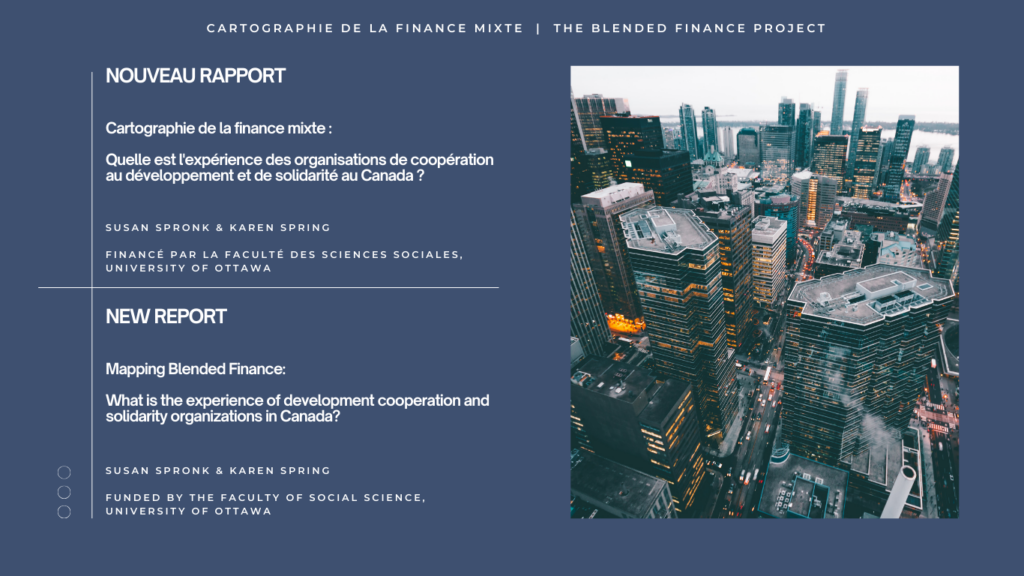Blended finance is the use of public aid funds to raise money from the private sector to meet international aid and development goals while providing a profit to private investors. It is increasingly promoted as a solution to the financing gap to achieve the United Nations’ Sustainable Development Goals. The Canadian government’s optimistic attitude towards this strategy is simply not supported by the data and lacks a critical analysis of its implications for affected communities around the world and the future of Canada’s Official Development Assistance. Blended finance is yet another iteration of privatization and financialization, whereby publicly funded aid programs increasingly serve the needs and goals of the private sector. This project seeks to unpack these shortcomings, providing a critical analysis of blended finance and other aid instruments used here in Canada and elsewhere to attract private sector investment. Click here for more.
Check out this new report:
Mapping Blended Finance: What is the experience of development cooperation and solidarity organizations in Canada?

Canada’s blended finance track record: Case studies about FinDev Canada.
In January 2018, Export Development Canada (EDC), the national export credit agency, launched a subsidiary firm, the Development Finance Institute Canada (FinDev). FinDev’s mandate is to support “the private sector in developing markets to promote sustainable development” by focusing on job creation (through market development), women’s economic empowerment, and climate change mitigation and adaptation. Since its formation, FinDev’s portfolio has grown. Read these case studies to learn about some of the controversies and issues FinDev’s investments have raised so far.
